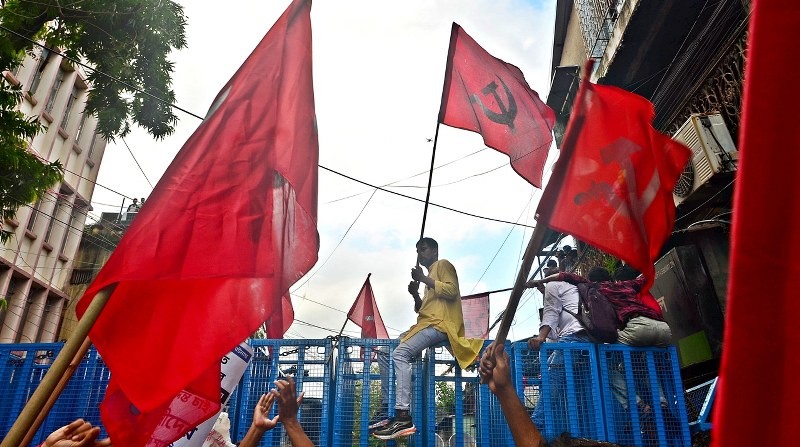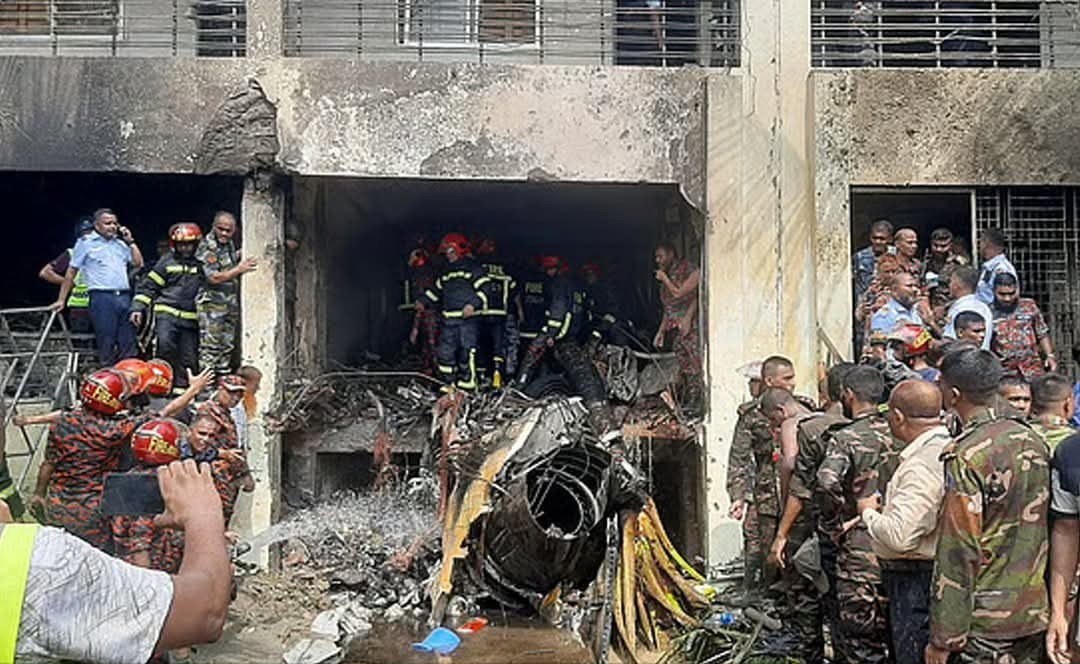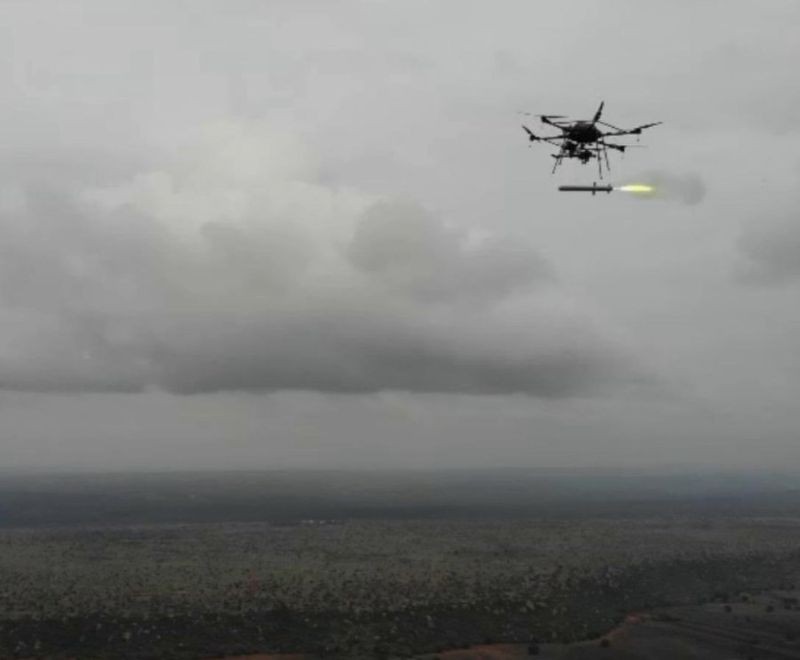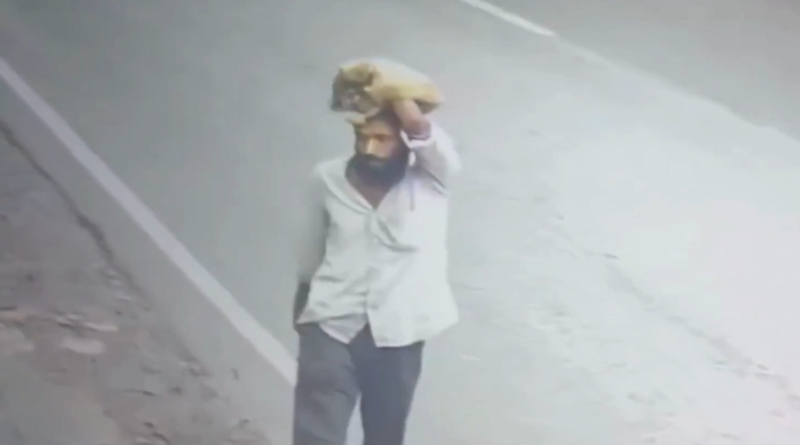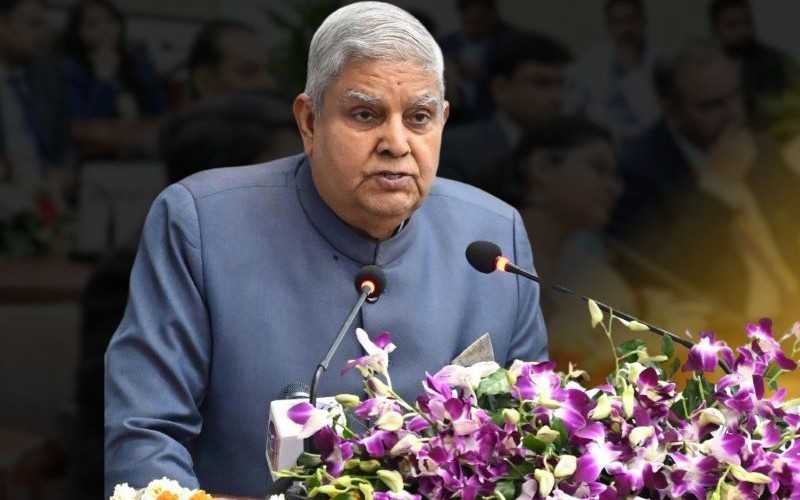PM lays foundation stone for redevelopment of 508 railway stations across the country
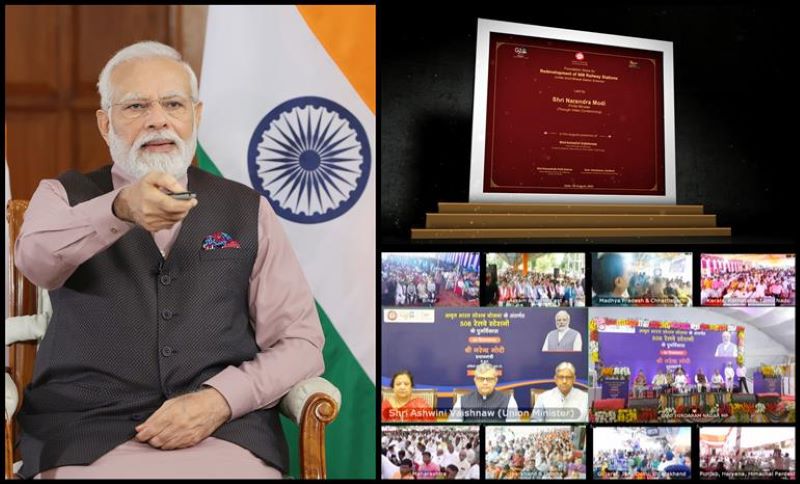
New Delhi: Prime Minister Narendra Modi laid the foundation stone for the redevelopment of 508 Railway Stations across the country via video conferencing on Sunday.
Redeveloped at a cost of more than Rs 24,470 crores, these 508 stations are spread across 27 states and union territories.
These include 55 each in Uttar Pradesh and Rajasthan, 49 in Bihar, 44 in Maharashtra, 37 in West Bengal, 34 in Madhya Pradesh, 32 in Assam, 25 in Odisha, 22 in Punjab, 21 each in Gujarat and Telangana, 20 in Jharkhand, 18 each in Andhra Pradesh and Tamil Nadu, 15 in Haryana, 13 in Karnataka among others.
Addressing the gathering, the Prime Minister termed the development as the beginning of a new chapter in the history of Indian Railways, underlining that. almost 1300 prime railway stations in the country will now be modernised.
These stations will be called ‘Amrit Bharat Stations’ and the foundation stone for the modernisation of 508 of these stations is being laid today at the cost of nearly Rs 25,000 crores.
He emphasised that the redevelopment project will be a huge campaign for infrastructure development in the country along with the railways as well as the common citizens.
Noting that its benefits will be spread to all states in the country, the Prime Minister mentioned that 55 Amrit Stations will be developed at the cost of approx Rs 4,000 crores in Uttar Pradesh and Rajasthan, 34 stations in Madhya Pradesh at the cost of approx Rs 1,000 crores, 44 stations in Maharashtra at the cost of 1,500 crores, and prime railway stations in Tamil Nadu, Karnataka and Kerala among others will be redeveloped.
The Prime Minister praised the Ministry of Railways and congratulated the citizens for this historic project.
The Prime Minister attributed a stable full majority government by the people of India and the government’s ambitious decisions and relentless work to achieve the set goals in accordance with their aspirations as the main cause behind such mega infrastructure growth.
Underscoring the achievements of his country, he emphasised that in the last nine years, the length of track laid in the country is more than the combined railway network in South Africa, Ukraine, Poland, the UK and Sweden.
Putting the scale of expansion in Indian railways in perspective, the Prime Minister further said that in the last year alone, India laid more railway tracks than the combined railway network of South Korea, New Zealand and Australia.
Today, he said, the government is working to make the rail journey accessible as well as pleasant. “The effort is to provide the best possible experience from train to station,” he added.
He mentioned better seating on platforms, upgraded waiting rooms and free WiFi on thousands of stations.
Highlighting the significant advancements witnessed in the Indian Railways, Modi noted that any Prime Minister would naturally want to highlight these accomplishments from the iconic Red Fort. He further stressed that the meticulous organisation of today's event has provided him the opportunity to delve extensively into the Railway's achievements right on this very day.
Modi said railway is the lifeline of the country and said along with this, the identity of the cities is also linked with the railway stations which have become the heart of the city with the passing of time. This has made it imperative to provide a modern form to the stations.
The modernisation of so many stations will create a good first impression among the visitors.
Upgraded stations will not only increase tourism but will also give a push to economic activities in the nearby areas.
He added that the ‘One Station One Product’ scheme will help the artisans and will help in the branding of the district.
The Prime Minister emphasized that the country has also taken the resolution to take pride in one’s heritage in the Azadi Ka Amrit Kaal.
“These Amrit Railway stations will be a symbol of taking pride in one’s heritage and instill pride in every citizen,” Modi said.
The Prime Minister said that the Amrit Stations will present a glimpse of India’s cultural and local heritage.
Giving examples, the Prime Minister mentioned that Jaipur Railway Stations will have glimpses of Hawa Mahal and Amer Fort from Rajasthan, Jammu Tawi Railway Station in Jammu and Kashmir will be inspired by the famous Raghunath Mandir and Dimapur Station of Nagaland will showcase the local architecture of 16 different tribes from the region.
He stated that every railway station will be a symbol of the modern aspirations of the country along with its ancient heritage.
The Prime Minister mentioned strengthening the ‘Bharat Gaurav Yatra Trains’ which connects places of historical relevance and pilgrimages.
The Prime Minister said record investment has been done in railways. This year, Railways received a budget of more than Rs 2.5 lakh crores, a five-fold increase as compared to 2014.
“Today,” he said, “work is being done for the complete development of Railways with a holistic approach. Locomotive production increased by 9 times in the last 9 years.”
Now, 13 times more HLB coaches are being manufactured.
Talking about the railway extension in the Northeast, the Prime Minister said, work is going on rapidly on doubling of the lines, gauge conversion, electrification and new routes.
“Soon, all state capitals of the Northeast will be connected by railway network,” Modi said.
He informed that Nagaland got its second station after 100 years. “Commissioning of new railway lines in the region has increased three times”, he said.
The Prime Minister informed that in the last 9 years more than 2200 km dedicated freight corridors have been constructed leading to a reduction in the travel time of the goods train.
Goods reach western ports from Delhi NCR in 24 hours, a task that used to take 72 hours.
There has been a 40 percent reduction in time has been witnessed on the other routes also which is hugely benefitting the entrepreneurs, industrialists and farmers.
Pointing out the difficulties faced due to the lack of Railway bridges, the Prime Minister informed that there were less than 6000 railway overbridges and underbridges before 2014, but today, that number has gone beyond 10,000.
He also mentioned that the number of unmanned level crossings on large lines is now down to zero.
Speaking about the convenience for passengers, the Prime Minister underlined that special emphasis is being laid upon the needs of the elderly and divyang.
He informed that 100 percent rail line electrification will be achieved very soon which will result in all the trains in India running only on electricity.
The Prime Minister also mentioned that the number of stations that generate electricity from solar panels has increased to more than 1200 in the last 9 years.
He emphasised that the government aims to produce green energy from every railway station in the near future and in this direction LED lights have been installed in about 70,000 coaches and the number of bio-toilets in trains has increased 28 times as compared to 2014.
He underlined that all the Amrit stations will be built to meet the standards of green buildings.
“By 2030, India will be a country whose railway network will run on net zero emissions,” he added.
He lamented the opposition to projects like the new Parliament Building, Kartavya Path, war memorial and Statue of Unity.
“Away from negative politics, we have taken the task of nation’s development as a mission and given it the top priority irrespective of vote bank and party politics,” he said.
Highlighting that railway has provided jobs to more than 1.5 lakh youth alone, the Prime Minister said that employment is also being created by investing lakhs of crores on infrastructure.
Acknowledging the presence of freedom fighters and Padma awardees in at the occasion, the Prime Minister underscored the significance of August for every Indian.
He described it as a month of revolution, gratitude, and duty, marked by historical events that reshaped the course of India's history.
Addressing National Handloom Day, celebrated on August 7 in honour of the Swadeshi movement, the Prime Minister emphasized its alignment with the "Vocal for Local" initiative.
He also advocated celebrating Ganesh Chaturthi in an eco-friendly manner, suggesting the adoption of eco-friendly idols and support for local artisans and small entrepreneurs.
Highlighting August 9 as the historic start of the Quit India movement, a turning point in India's independence struggle, the Prime Minister likened the nation's determination to "Quit India" for various societal ills today, such as corruption, dynastic politics, and appeasement.
Reflecting on the upcoming Partition Horror Remembrance Day, the Prime Minister paid tribute to those who endured the partition's aftermath and contributed to the nation's development. He stressed the importance of preserving unity and encouraged citizens to hoist the tricolor at their homes, just as last year.
Addressing the positive shift in citizens' perception of taxes as an instrument of nation-building rather than corruption, the Prime Minister highlighted the growing number of taxpayers and improved Ease of Living.
He noted that while previously income of Rs 2 lakh was taxed, today income up to Rs 7 lakh is untaxed. He lauded the increased trust in the government, evident in a 16% rise in tax filings this year.
Illustrating the rejuvenation of railways, the expansion of metros, and the development of new expressways and airports, the Prime Minister accentuated the transformation of India with taxpayers' contributions. He concluded by underscoring the modernization of 508 railway stations as part of the Amrit Bharat Stations initiative, poised to elevate the Indian Railways to greater heights.

